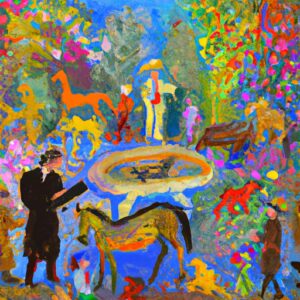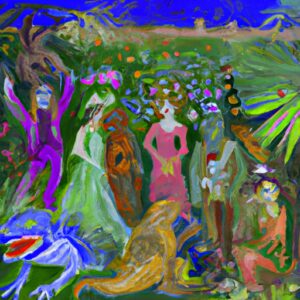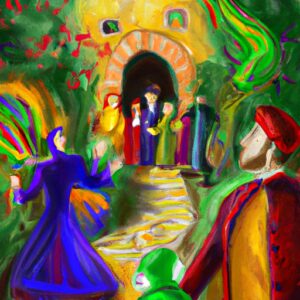What does dipende mean in Italian?
“Dipende. Da che dipende? Da che punto guardi il mondo. Tutto dipende.”
Have you ever heard that song by the Spanish group Jarabe de Palo? If not, we recommend listening to it.
Here’s the translation of the phrase above:
“It depends. What does it depend on? On what side you look at the world. Everything depends (on something).”
What goes before dipende?
We can use dipende on its own, that is, without a subject.
This is because we usually refer to a situation or a context that we mentioned just before and we don’t want to repeat, like in the example below:
Non so se posso venire domani. Dipende dai miei genitori.
I don’t know if I can come tomorrow. It depends on my parents.
But dipende can also be preceded by a specific subject, just like in the sentence below:
Il concetto di bellezza dipende dalla cultura.
The concept of beauty depends on culture.
As you can see, it depends on what you’re referring to, like in English.
What goes after dipende?
In English, we have two possible scenarios:
- It depends if we’re not going to continue the sentence.
- It depends on… if we’re going to continue the sentence.
It’s the same in Italian: we can either just say dipende and that’s it, or we can say dipende da… if we’re going to continue the sentence.
So, make sure not to forget the short word da if you’re going to continue your sentence. Of course, depending on what you’re referring to, you can also say dal, dallo, dalla, dai, dalle, or dagli.
We can continue the sentence with just one noun (a person, a thing, etc.) or a pronoun (me, te, lui, etc.), like in the following sentence:
Questo dipende da te.
This depends on you.
We can also continue the sentence with a longer sentence introduced by words like come (how), quando (when), and cosa (what) like in the example below:
Non so se Sara viene. Dipende da come si sente.
I don’t know if Sara is coming. It depends on how she’s feeling.
How to form questions with dipende?
We can just ask da cosa dipende? or da che dipende? which means “what does it depend on?”
The answer will then start with da or dal, dalla, etc depending on what you’re referring to, like in the dialogue below:
A: Da che cosa dipende?
B: Dalle mie amiche.
A: What does it depend on?
B: On my friends.
Dipende: examples
Have a look at the dialogues below:
A: Puoi tornare a lavorare?
B: Dipende da cosa mi dice la dottoressa.
A: Can you go back to work?
B: It depends on what the doctor says.
A: Ci vediamo stasera?
B: Dipende.
A: Da cosa dipende?
A: Are we seeing each other tonight?
B: It depends.
A: What does it depend on?
A: Non so se veniamo domani.
B: Da cosa dipende?
A: Dal clima.
A: I don’t know if we’re coming tomorrow.
B: What does it depend on?
A: On the weather.









